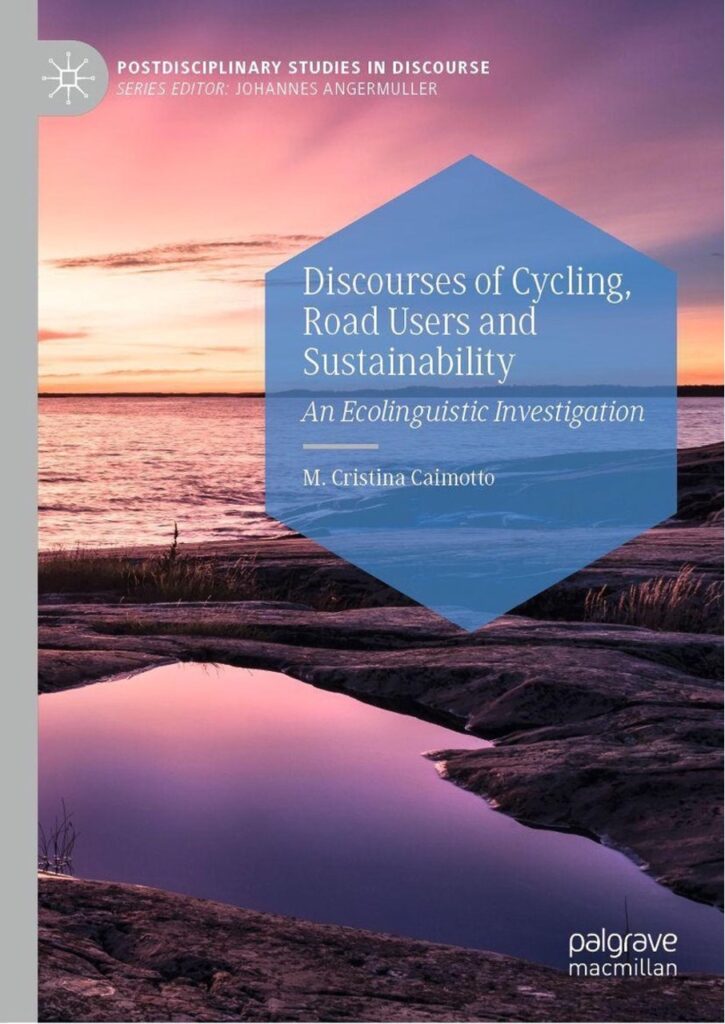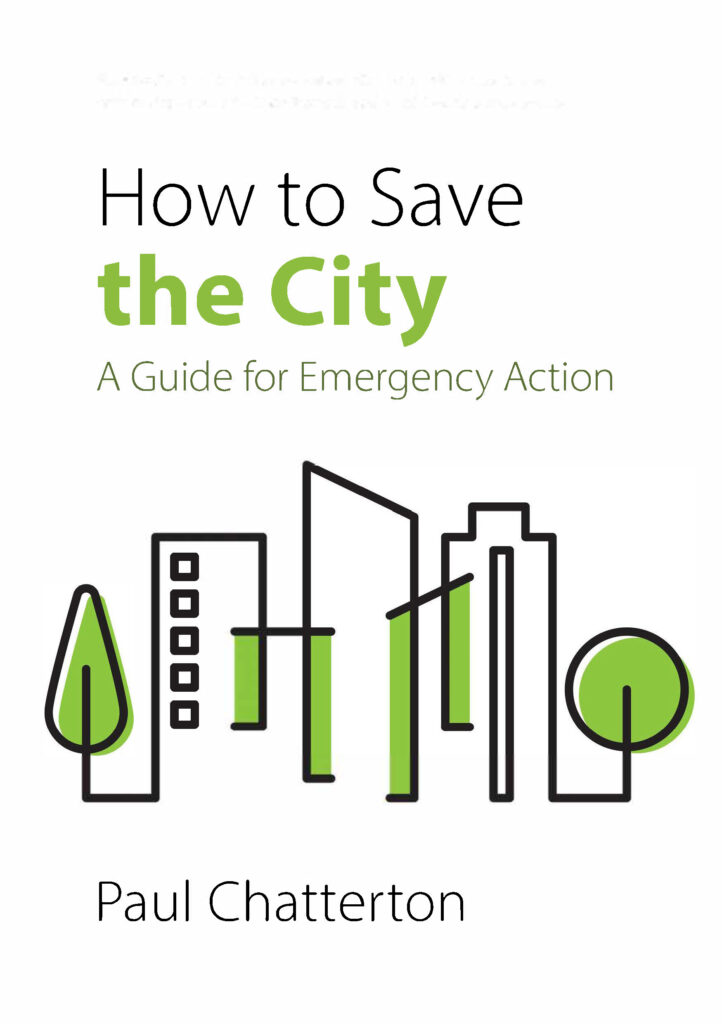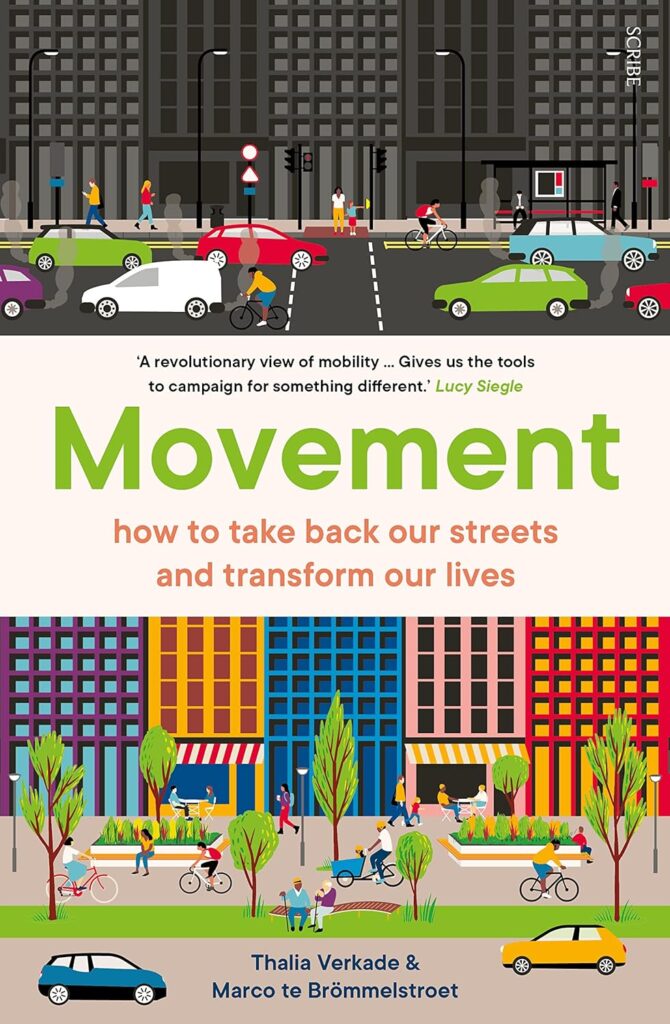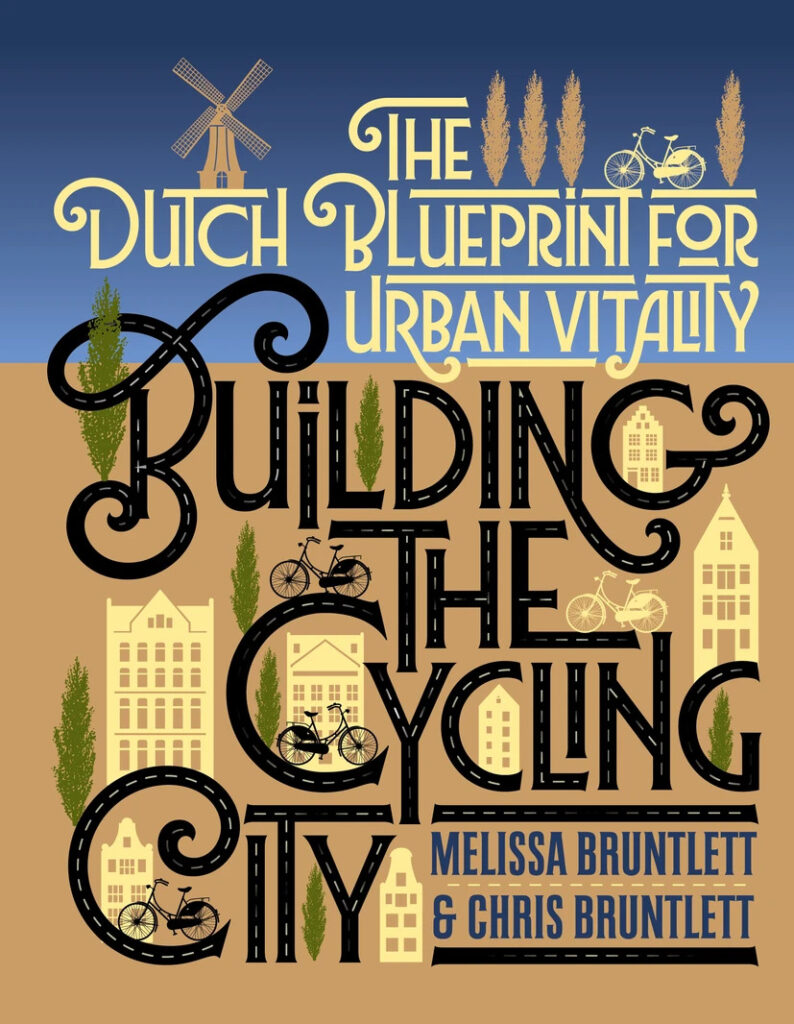
What is it about?
Discourses of Cycling, Road Users and Sustainability unpacks the ways in which the media, policy makers, people that cycle and advocates talk about cycling. Caimotto, a linguist, shows us how the words and frames that are used reveal much deeper meanings than we so often assume. The book does not only analyse this for a number of interesting cases. The books helps us to wield the power of language in order to unlock the potential of the humble bicycle for true transformative change of our mobility system.
The argument starts by showing how the unsustainable nature of our civilization can be attributed to a large part to the stories that steer our collective behavior. This notion means that to escape the resulting lock-in, we need to invent new stories: “These are not stories in the traditional sense of a narrative, however, but rather discourses, frames, metaphors and, in general, clusters of linguistic features that come together to covey particular worldviews.” (Stibbe 2014, quoted on p. 2). It is through discourses that ways of talking, thinking and acting are institutionalised and regulated, and it is in this sense that discourses exercise power. Such power is not direct:
“Influence—whether aiming to reproduce or contest the dominant discourse(s)—will not be exerted through a single text but rather through constant repetition. Changes are thus generated either slowly, through a gradual shift in the ways reality is discussed and perceived, or more swiftly in the wake of some major historical event able to shake people’s deepest convictions.”
p. 15
Throughout the book it becomes clear how cycling can offer new stories about what the ‘good life’ can be; how it can be used to Transcend Paradigms (dixit Donella Meadows). But that so often cycling instead is framed in direct relation to the existing neoliberal story of economic growth with a marketized discourse. This co-opting is a direct result of policy-makers and activists trying to speak the prevailing language of mobility, to get on the table, to sell cycling as relevant within the mainstream policy-making logic. The cost of this is that instead of using cycling for a new, more sustainable and fulfilling way of living, it instead further reinforces the neoliberal worldview. Caimotto proposes to use Critical Discourse Studies (CDS) “to investigate how ideologies can become frozen in language and find ways to break the ice” (p. 16)
In the empirical chapters, we go through media discourse around cycling crashes, policy documents, cycling visions and the narratives of people that cycle. The most powerful work is on the language of conflict, an ‘us versus them’ dichotomy (e.g. “cyclists” instead of “people who cycle”) that is applied in the English newspapers: “it is hard to think of another group engaged in a legal activity against whom such levels of threat with violence and hostility would be considered acceptable” (p. 25). This stigmatization and dehumanisation that is considered acceptable resembles systemic racism. Caimotto uses the mechanisms of the denial of racism to understand how newspapers discuss the behaviour of people on bikes and finds that this shows an underlying resistance to social change.
What approach does it take?
The book offers methodological inspiration (Critical Discourse Studies and the concept of Transcending Paradigms), a historical overview of mobility discourse (building on Peter Norton), and empirical studies on newspaper articles, mobility strategies and interviews with people that cycle.
Who might be interested in this book?
If you work in cycling activism or policy making, the book offers a valuable source of reflection on how you do and can use language. For scholars that study cycling, Caimotto offers valuable tools to study the influence of narratives and discourses in resisting change towards more cycling-oriented policies. As Nello-Deakin argued: we know by now how to improve cycling conditions, making cycling policy more and more a political question instead of a technical one.
Further details
- Academic disciplines: Linguistics, sociology, communication studies, urban planning.
- Geographical scope: Empirical material from the United Kingdom.
- Relation to cycling: Cycling is central in this book: in trying to understand how discourses shape cycling, but also how cycling could shape new discourses.
- Reference (APA): Caimotto, M. C. (2020). Discourses of Cycling, Road Users and Sustainability: An Ecolinguistic Investigation. Palgrave Macmillan, London.



